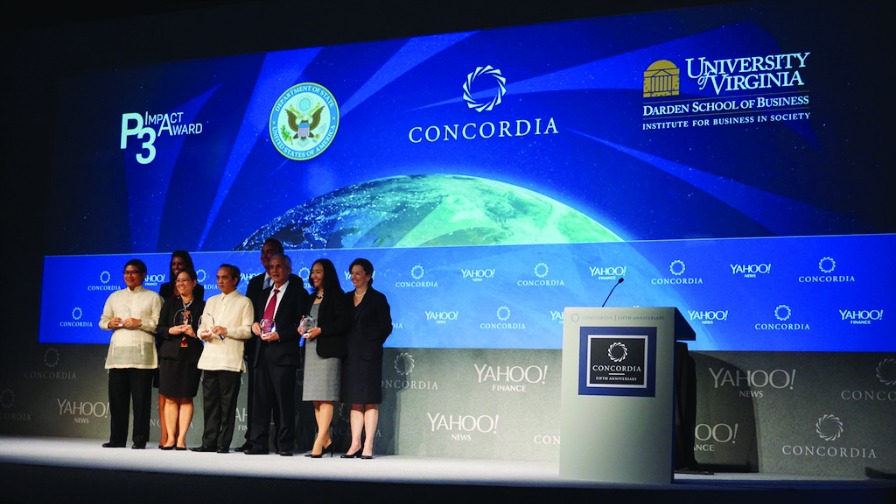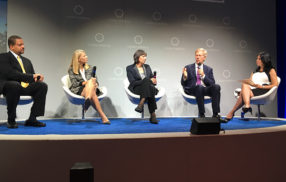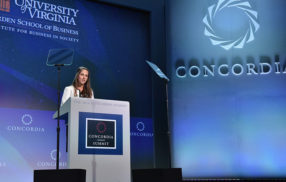
P3 Impact Award Winner Commits to Bring Broadband to 2 Million Rural Americans
By Jay Hodgkins
When Microsoft, USAID and the Philippines’ Department of Science and Technology and Bureau of Fisheries and Aquatic Resources were presented with the P3 Impact Award in 2015 by the University of Virginia Darden School of Business, Concordia and U.S. State Department for their TV White Space Partnership, the public-private effort to bring broadband internet to remote areas around the world was just beginning to make an impact.
Today, Microsoft is leading the charge with 20 TV White Space projects in 17 countries, serving 185,000 users. And the company isn’t done, just announcing plans to extend the low-cost, high-speed internet technology to two million under-served rural Americans over the next five years.
Darden’s Institute for Business in Society discussed Microsoft’s announcement on its blog:
The announcement is part of the company’s strategy to eliminate what it refers to as the “rural broadband gap” in the United States — an issue that Microsoft President & Chief Legal Officer Brad Smith calls “a problem that is receiving a great deal of attention, but not many solutions.”
Lacking access to the Internet causes a host of social, financial and economic penalties, including negative effects upon one’s education, job performance, employment searches, civic engagement, online commerce and more.
According to Smith, “[Broadband connectivity] is no longer simply a luxury … It has become a critical connection to a better education and living.”
Professor Mary Margaret Frank commented on Microsoft’s announcement and success deploying TV White Space through public-private partnerships, while Professor Jeremy Hutchison-Krupat recently examined the TV White Space partnership in a new case study published this year.
Professor Mary Margaret Frank, an academic director of the Institute for Business in Society who leads the center’s P3 Impact Award and multi-sector collaboration efforts, said, “It’s extremely rewarding to see one of our past P3 Impact Award winners using their success and expertise to help under-served communities and improve society.”
“We can’t wait to follow the progress of Microsoft’s newest initiative to provide broadband connectivity to millions of Americans who do not have access to this critical technology. It just goes to show that when purpose-driven companies identify a need, and then partner with the public and social sectors to help address that need, social progress and impact can be achieved. And that’s good for all of us.”
Read more about the TV White Space partnership in a case study by Professor Jeremy Hutchison-Krupat in Darden Business Publishing, Connecting the Dots at Microsoft: Global Planning for a Local World, published January 30, 2017.
Read the full article on TV White Space.
The University of Virginia Darden School of Business prepares responsible global leaders through unparalleled transformational learning experiences. Darden’s graduate degree programs (MBA, MSBA and Ph.D.) and Executive Education & Lifelong Learning programs offered by the Darden School Foundation set the stage for a lifetime of career advancement and impact. Darden’s top-ranked faculty, renowned for teaching excellence, inspires and shapes modern business leadership worldwide through research, thought leadership and business publishing. Darden has Grounds in Charlottesville, Virginia, and the Washington, D.C., area and a global community that includes 18,000 alumni in 90 countries. Darden was established in 1955 at the University of Virginia, a top public university founded by Thomas Jefferson in 1819 in Charlottesville, Virginia.
Press Contact
Molly Mitchell
Senior Associate Director, Editorial and Media Relations
Darden School of Business
University of Virginia
MitchellM@darden.virginia.edu






